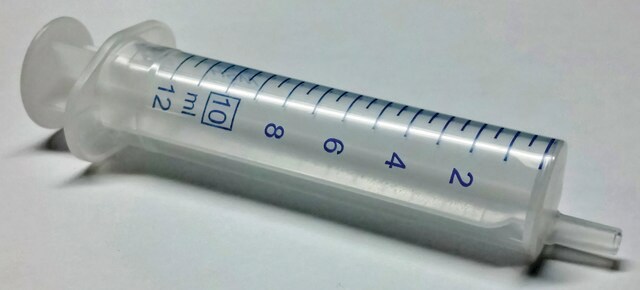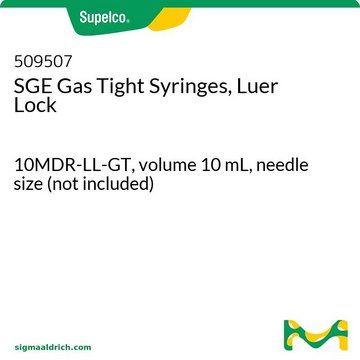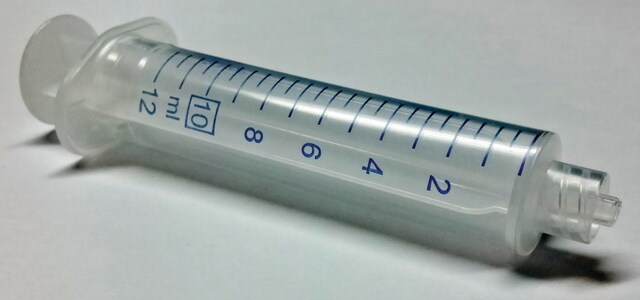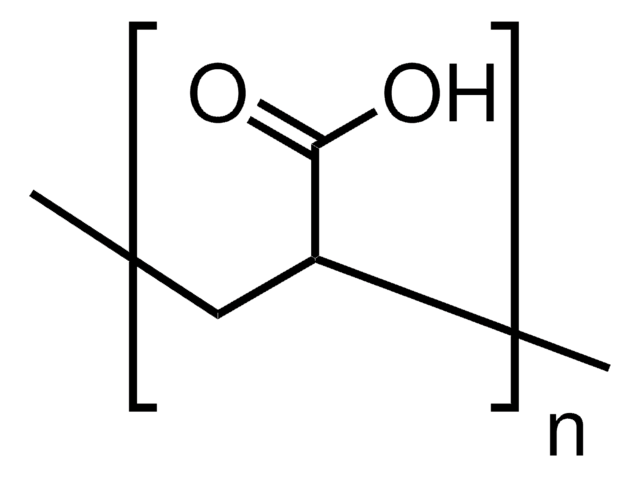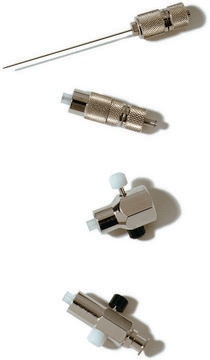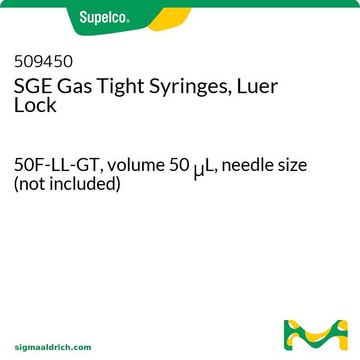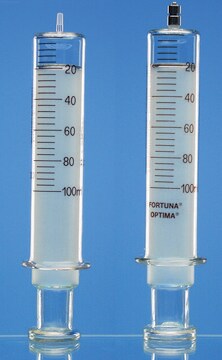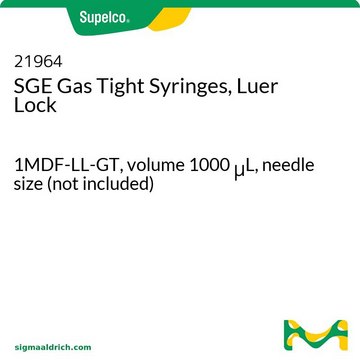21532
SGE Gas Tight Syringes, Luer Lock
50MR-LL-GT, volume 50 mL, needle size (not included)
Synonym(s):
SYRINGE SGE 50MAX-LL-GT, 50ML
Sign Into View Organizational & Contract Pricing
All Photos(1)
About This Item
UNSPSC Code:
41122001
Recommended Products
material
glass syringe
needle size
(not included)
feature
needle type Luer lock
packaging
pkg of 1 ea
manufacturer/tradename
SGE 009660
volume
50 mL
Looking for similar products? Visit Product Comparison Guide
General description
- SGE gas tight syringe without a needle, Model: 50MR-LL-GT.
- Made of borosilicate glass, PTFE plunger tips, and KEL-F Luer cones.
- Autoclavable syringes but the plunger should be removed.
- Features an interference fit between the plunger tip and the barrel, which enhances the gas sealing properties of the syringe.
- Maximum inertness for liquid or gas samples.
SGE gas tight syringes are constructed of borosilicate glass, PTFE plunger tips, and KEL-F Luer cones where applicable. An interference fit between the plunger tip and the barrel enhances the gas sealing properties of the syringe. Plungers are interchangeable. Syringes can be autoclaved, but the plunger should be removed.
related product
Product No.
Description
Pricing
Choose from one of the most recent versions:
Certificates of Analysis (COA)
Lot/Batch Number
Sorry, we don't have COAs for this product available online at this time.
If you need assistance, please contact Customer Support.
Already Own This Product?
Find documentation for the products that you have recently purchased in the Document Library.
Customers Also Viewed
Mark Trimmer et al.
Applied and environmental microbiology, 69(11), 6447-6454 (2003-11-07)
Until recently, denitrification was thought to be the only significant pathway for N(2) formation and, in turn, the removal of nitrogen in aquatic sediments. The discovery of anaerobic ammonium oxidation in the laboratory suggested that alternative metabolisms might be present
Widespread occurrence of the anammox reaction in estuarine sediments.
Nicholls JC and Trimmer M.
Aquatic Toxicology (Amsterdam, Netherlands), 55 (2), 105-105 (2009)
Mark Henning et al.
Rapid communications in mass spectrometry : RCM, 21(14), 2269-2272 (2007-06-20)
Compound-specific deltaD and delta13C analyses of gas mixtures are useful indicators of geochemical and environmental factors. However, the relative concentrations of individual components in gas mixtures (e.g., H2, CO2, methane, ethane, propane, i-butane, n-butane) may vary over several orders of
Our team of scientists has experience in all areas of research including Life Science, Material Science, Chemical Synthesis, Chromatography, Analytical and many others.
Contact Technical Service

